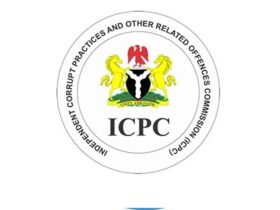Dangote Petroleum Refinery and Petrochemicals FZE and the Federal Competition and Consumer Protection Commission (FCCPC) have taken opposing legal positions regarding the former’s N100 billion import license lawsuit and allegations of monopoly in the oil and gas sector.
This is according to counter-affidavits and associated court documents exclusively seen and reviewed by Nairametrics amid the refinery’s suit.
The pending suit, marked FHC/ABJ/CS/1324/2024, seeks to void import licenses issued to some Nigerian oil companies by the Nigerian Midstream and Downstream Petroleum Regulatory Authority (NMDPRA).
These companies include the Nigerian National Petroleum Company Limited (NNPCL), Matrix Petroleum Services Limited, A.A. Rano Limited, and four others.
Brief facts of the case
In suit number, FHC/ABJ/CS/1324/2024, dated September 2024 and first mentioned at the Federal High Court, Abuja, in October last year, Dangote Refinery is seeking N100 billion in damages against NMDPRA for allegedly continuing to issue import licenses to NNPCL, Matrix, and other companies for importing petroleum products such as Automotive Gas Oil (AGO) and Jet Fuel (aviation turbine fuel) into Nigeria.
The refinery argues that these products are already being produced domestically without shortfalls.
The refinery’s lawyers, Dr. Ogwu James Onoja, SAN, and George Ibrahim, SAN, argued that NMDPRA allegedly violated Sections 317(8) and (9) of the Petroleum Industry Act (PIA) by issuing import licenses for petroleum products, which should only be granted when there is a proven shortfall in supply.
Days after the suit was filed and adjourned, three oil companies—Matrix Petroleum Services Limited, A.A. Rano Limited, and AYM Shafa Limited—filed a motion urging the court to dismiss the suit.
They argued that only NMDPRA and NNPCL are legally empowered to determine petroleum product shortfalls in Nigeria, not Dangote Refinery.
Meanwhile, NNPCL’s counsel, Ademola Abimbola, SAN, filed a preliminary objection, arguing that the plaintiff erroneously sued “Nigeria National Petroleum Corporation,” a non-existent entity, instead of the correctly registered “Nigerian National Petroleum Company Limited.”
Abimbola also argued that until NMDPRA decides to apply the Backward Integration Policy in the downstream petroleum sector, it is not under any obligation to restrict the issuance of petroleum product import licenses solely to cover shortfalls in local refinery production.
In its counter-affidavit and written address filed last Friday and seen by Nairametrics, George Ibrahim asked the court to dismiss NNPCL’s objection, arguing that a close examination of the originating summons, affidavit, and attached documents clearly shows that the plaintiff’s grievance concerns the “flagrant disobedience of the Petroleum Industry Act (PIA) by a statutory body created to implement the Act.”
Nairametrics reports that the matter is pending before Justice Inyang Ekwo, and the next proceedings have been fixed for February 5, 2025.
Amid the pending case, the FCCPC, on January 5, 2025, filed a motion on notice seeking the court’s leave to join as a “co-defendant” in the refinery’s lawsuit.
What FCCPC and Dangote Refinery Are Saying
° In its motion and accompanying processes exclusively seen by Nairametrics, the FCCPC legal team, led by Barrister Olarenwaju Osinaike, stated that FCCPC is seeking to be joined as a necessary party to the present proceedings because its interest would allegedly be affected by the outcome of the suit.
° The Commission stated that the case involves whether preventing the oil companies in dispute from operating the said licenses would lead to anti-competition or monopoly in favor of Dangote Refinery, among others.










Got a Questions?
Find us on Socials or Contact us and we’ll get back to you as soon as possible.